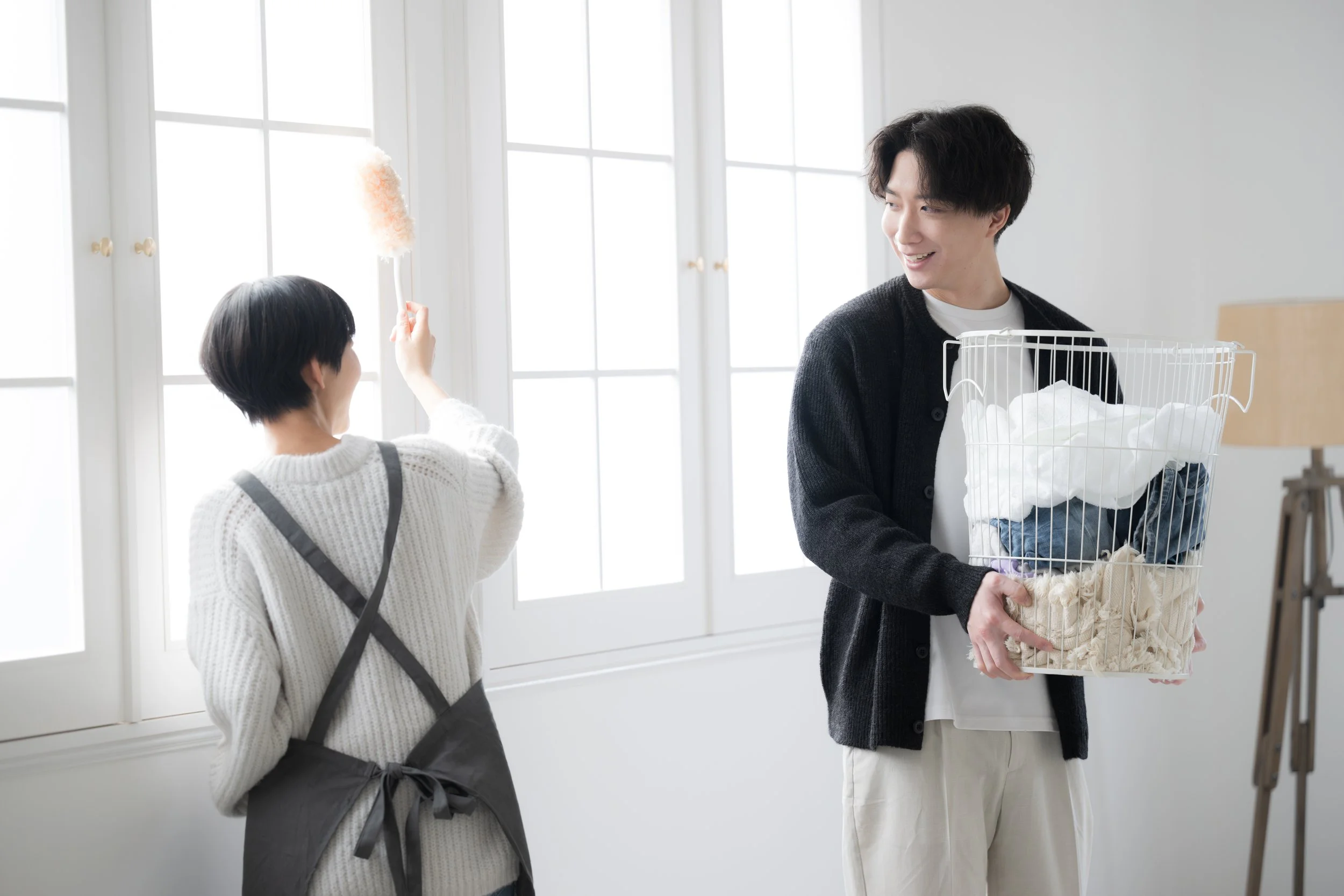THE IDENTIFIER
PEOPLE PLUS
CONCEPTUAL DESIGN
Conceptual Design
How you relate to other.
Intellectual Stimulation in Relationships
You prefer relationships that stimulate you intellectually because you crave deep, meaningful exchanges that go beyond surface-level conversation. You're passionate about exploring complex ideas and sharing insights that both challenge and broaden your understanding, as well as that of those around you. This intellectual exchange isn't just about sharing information but also about creating an environment where both parties can grow together.
Understanding and Tailoring Connections
Your approach to relationships involves a deep understanding of the people you connect with. You don't just want to know their likes or dislikes but also appreciate their intellectual depth and how they process new information. With this understanding, you tailor your conversations to share insights more effectively and engage in stimulating debates that refine everyone's ideas.
Mutual Recognition and Intellectual Identity
You value relationships where you feel seen and understood, and you extend the same courtesy to others. Your sense of self is tied to your intellectual identity, and you appreciate it when others recognize and respect this aspect of you. By connecting with people who match your curiosity and understanding, you build relationships that are enriching, supportive, and align with your values.You study the people that you are in relationships with to better understand them.
You enjoy debating ideas as a way of connecting with others.
You love relationships that intellectually stimulate you.
You love connecting with people who can receive insight from you.
You want people to see you through the lens of your understanding of yourself.
Conceptual Design
Meet the other designs
Conceptual Design
-
People with the Conceptual Design are curious, thoughtful, and idea-driven, centered around the pursuit of new knowledge, principles, and methods. They thrive in environments where they can question assumptions, uncover hidden patterns, and deepen their understanding of how the world works.
Their motivation comes from a desire to innovate through insight—to not only discover what is true, but to develop frameworks, strategies, and solutions that bring clarity and progress. Conceptual individuals find joy in the process of exploration and learning, especially when they can share and refine ideas with others.
-
Perception: Partners in Thought and Innovation
Conceptual Designs often see other Conceptuals as intellectual allies—people who think in the same deep, abstract, and creative ways they do. They recognize in each other a shared love for ideas, inquiry, and the pursuit of understanding. Conversations are often rich and open-ended, filled with big questions, new connections, and mental exploration.
They admire one another’s ability to conceptualize from a blank slate, to challenge convention, and to explore beyond the obvious. There’s a feeling of intellectual safety in the presence of another Conceptual, where ideas don’t need to be justified too soon, and complexity is welcomed rather than simplified.
Critique: Theory Without Traction
However, Conceptuals may also notice in each other a tendency to drift into abstraction, prioritizing thinking over doing, and getting stuck in analysis rather than execution. They may observe that both parties sometimes avoid commitment to a direction, preferring to keep ideas fluid rather than grounded.
This can lead to circular discussions, untested theories, or plans that remain ideas on paper. One Conceptual may find themselves wishing the other would commit to action, even before all the variables are fully understood.
Appreciation: Intellectual Synergy and Mutual Expansion
Despite their occasional stalls, Conceptual Designs greatly appreciate the depth and stimulation they find in each other. They value the way their thinking is challenged, expanded, and refined in dialogue with another Conceptual. Together, they are capable of stretching the limits of thought, uncovering new paradigms, and building intellectual frameworks that shift the way others see the world.
They often experience a sense of growth, creativity, and possibility in one another’s presence—and when they choose to apply their insights, they can develop some of the most visionary and strategic contributions within any team or community.
-
When Conceptual Designs pair with each other, the result is a dynamic partnership of mental agility, curiosity, and innovation. They question deeply, dream broadly, and build frameworks that others may use for decades to come. Yet their challenge lies in grounding the abstract, and choosing when to act on insight rather than continue exploring it.
Together, they remind us that the greatest innovations are born where creativity meets clarity, and that wisdom grows when deep minds dare to think—and then, choose to build.
Intuitive Design
-
People with the Intuitive Design are deeply introspective, analytically sharp, and attuned to unseen motives and meanings. They are motivated by the need to understand what lies beneath the surface, often looking beyond appearances to discern the true essence of people, situations, and systems.
Intuitive Designs are observers, questioners, and inner truth-seekers. They’re often found listening more than speaking, watching more than acting—gathering insight before offering perspective. Their drive is to bring clarity, transformation, and truth to the surface, facilitating meaningful change by illuminating what others miss.
-
Perception: Abstract Explorers with Visionary Insight
Intuitive individuals often see Conceptual Designs as intellectually engaging, innovative, and mentally expansive. They admire the Conceptual’s ability to generate new frameworks, ask wide-ranging questions, and see possibilities that others may overlook.
While Intuitives tend to look inward and downward into the depth of things, they see Conceptuals looking upward and outward into the boundaries of possibility. There’s a mutual respect for one another’s ability to go deep—Intuitives into motive and meaning, Conceptuals into thought and theory.
Critique: Theoretical but Disconnected
However, Intuitives may sometimes feel that Conceptual Designs are too theoretical, abstract, or removed from emotional or practical realities. They may observe that Conceptuals leap into ideas without grounding them in current conditions or human context.
To the Intuitive, this can feel like exploration for exploration’s sake, and they may wish Conceptuals would engage more with emotional nuance, relational awareness, or the lived implications of their concepts.
Appreciation: Thought Partners with Expansive Reach
Despite occasional frustration, Intuitive Designs deeply value the Conceptual’s ability to generate powerful, fresh, and boundary-breaking ideas. They admire their mental agility, their willingness to ask "What if?" and their tendency to push the boundaries of conventional thought.
Conceptuals expand the conversation, encouraging Intuitives to think bigger, consider new paradigms, and stretch their understanding into new intellectual territory. This can lead to profound insight and transformative collaborationwhen their strengths align.
-
Perception: Perceptive Analysts and Quiet Truth-Tellers
Conceptual Designs often view Intuitive Designs as keen observers with remarkable depth and clarity. They are drawn to the Intuitive’s ability to perceive underlying motives, patterns, and truths, especially those that aren't obvious at first glance.
To the Conceptual mind, Intuitives bring a grounding force, someone who can illuminate the heart of an issue with precision. They admire the Intuitive’s clarity, discernment, and emotional intelligence, recognizing that these insights help sharpen and refine their own ideas.
Critique: Overly Analytical or Hesitant
That said, Conceptual Designs may occasionally feel that Intuitives are too focused on minutiae, overly cautious, or emotionally intense. In the eyes of the Conceptual, who prefers movement through idea flow and intellectual experimentation, the Intuitive can sometimes feel too anchored in emotional or interpersonal detail.
They may wish Intuitives would allow more space for open-ended exploration or take more creative risks without demanding perfect clarity or proof upfront.
Appreciation: Grounding Wisdom and Analytical Precision
Still, Conceptuals highly value the stability and insight that Intuitives provide. They see them as partners who add depth and clarity, ensuring that innovative ideas don’t float too far from real human need or grounded truth.
Conceptuals benefit from the Intuitive’s tendency to ask “What does this really mean?” or “What’s the real issue here?”, helping them ensure their ideas are not just clever, but ethically sound, emotionally aware, and practically relevant.
-
When Intuitive and Conceptual Designs connect, they form a deeply thoughtful partnership—one that blends innovation with introspection, strategy with soul. Intuitives seek the truth behind the surface; Conceptuals seek the theory behind the system. One reflects inward, the other expands outward.
Together, they remind us that the best ideas are not only imaginative, but also deeply informed by clarity, context, and care—and that when truth and thought walk hand-in-hand, the outcome is insight that transforms.
Economical Design
-
People with the Economical Design are meticulous, cautious, and resource-focused, motivated by the desire to manage and preserve resources so that both present and future needs are consistently met. They are excellent at assessing value, minimizing waste, and ensuring long-term sustainability—whether in finances, materials, energy, or time.
Their strength lies in their ability to think ahead, stay grounded, and ensure that nothing essential is overlooked or under-resourced. They thrive in systems that require consistency, reliability, and measurable results, offering wisdom, restraint, and a strong sense of stewardship.
-
Perception: Innovative Problem-Solvers with Strategic Potential
Economical individuals often view Conceptual Designs as creative thinkers and visionary problem-solvers, capable of offering fresh approaches to long-standing challenges. They appreciate how Conceptuals think beyond current methods, bringing new strategies to areas like resource optimization, system efficiency, or long-term planning.
To an Economical mindset, Conceptuals are valued contributors to high-level discussions, offering unique insights and unexpected solutions that can improve the way things are done.
Critique: Too Abstract or Impractical
However, Economical Designs may also feel that Conceptual individuals are sometimes too theoretical or removed from practical realities. While their ideas may be interesting or even brilliant, they may not always fit within budget constraints, timelines, or current resource availability.
Economicals may wish that Conceptuals would take a more grounded, cost-conscious approach, focusing on what’s doable—not just what’s imaginable. They may see Conceptuals as needing more awareness of real-world limitations and tangible resource dynamics.
Appreciation: Strategic Innovation that Enhances Efficiency
Despite these concerns, Economical Designs genuinely appreciate Conceptuals for their outside-the-box thinking and long-term vision. They see them as allies in the pursuit of strategic excellence—capable of identifying untapped efficiencies, optimizing systems, and shaping smarter, more future-ready approaches to resource use.
When paired well, Economicals bring discipline and discernment, while Conceptuals bring imagination and innovation—a powerful combination for designing sustainable success.
-
Perception: Grounded Strategists and Practical Guardians
Conceptual individuals often see Economical Designs as resource-savvy, disciplined, and highly dependable. They recognize that Economicals are the ones who ensure feasibility, ask the tough financial questions, and keep ideas tethered to reality.
Conceptuals admire their ability to turn ideas into structured, resource-aligned plans, ensuring that no brilliant concept falls apart due to lack of planning, funding, or logistics.
Appreciation: Anchors of Practical Wisdom and Strategic Execution
Conceptual Designs deeply value the pragmatism and foresight that Economical individuals bring. While Conceptuals explore what’s possible, Economicals help them see what’s sustainable. They make sure that big ideas are not only exciting but also executable and effective in real-world settings.
This partnership allows Conceptuals to dream and design boldly, while trusting that Economicals will ensure those dreams are carried out with care, discipline, and long-term success in mind.
Critique: Overly Conservative or Risk-Averse
That said, Conceptuals may sometimes feel that Economicals are too risk-averse or too focused on scarcity and limits, which can stifle bold innovation. They may experience resistance when proposing speculative or unconventional ideas, especially if those ideas require upfront investment or experimentation.
Conceptuals may wish Economicals would be more willing to take calculated risks, trust the process of discovery, and invest in ideas that may not have immediate returns, but could yield significant value in the future.
-
The relationship between Economical and Conceptual Designs is a fusion of insight and implementation, vision and viability. One safeguards resources; the other reimagines how they can be used. One manages risk; the other explores possibility.
Together, they remind us that the best ideas are not just brilliant—they are also built to last, and that wise stewardship and creative innovation aren’t opposites—they are powerful partners in sustainable success.
Industrious design
-
People with the Industrious Design are practical, reliable, and detail-oriented, motivated by the need to maintain order, support systems, and ensure everything continues to function effectively. They are at their best when contributing behind the scenes—quietly carrying out essential tasks, sustaining operations, and creating the conditions for others to thrive.
They thrive in environments where routine, structure, and clear expectations are valued. Their fulfillment comes not from spotlight moments, but from the satisfaction of knowing things are working because they were there to make it happen. Industrious Designs bring steadiness, commitment, and follow-through to any team or project.
-
Perception: Inventive Thinkers and Visionary Problem-Solvers
Industrious Designs often view Conceptual individuals as creative, innovative, and mentally agile. They recognize the Conceptual Design’s ability to see things differently, approach problems with fresh thinking, and propose solutions others might not imagine. To Industrious individuals—who often manage tasks through systems and routine—this visionary input can be refreshing and inspiring.
They appreciate that Conceptuals can expand perspectives, find efficiencies, and often offer new methods or frameworks that improve functionality and effectiveness.
Critique: Too Abstract or Impractical
However, Industrious Designs may also feel that Conceptual individuals are sometimes too theoretical, unfocused, or removed from practical realities. Where Industrious types thrive on concrete steps, consistency, and doing what works, they may become frustrated if a Conceptual person spends too much time in idea mode without anchoring those ideas in clear, executable plans.
They may wish Conceptuals would be more willing to narrow their focus, commit to action, and respect the systems already in place—even while trying to improve or reinvent them.
Appreciation: Creative Catalysts for Better Systems
Still, Industrious Designs greatly value the creativity and insight Conceptual Designs bring. They see them as partners in improvement—those who help uncover better ways of doing things, even if the implementation needs a bit more structure.
When they work together effectively, Industrious Designs ensure the work gets done, while Conceptual Designs help elevate the work’s purpose and process. The result is a blend of innovation and consistency that leads to stronger outcomes over time.
-
Perception: Reliable Anchors and Essential Executors
Conceptual Designs often view Industrious individuals as steadfast, dependable, and practically wise. They recognize that their ability to generate ideas and explore new possibilities is greatly supported by the Industrious person’s capacity to organize, execute, and maintain order.
They see Industrious Designs as the people who make things happen—not through flash, but through faithfulness. These are the collaborators who ensure the details are addressed, the systems hold, and the ideas don’t just float—they land.
Appreciation: Grounding Partners with Precision and Heart
Conceptual Designs deeply appreciate the Industrious Design’s commitment to implementation and sustainability. They value their ability to translate vision into structure, bringing reliability and functionality to abstract ideas. With a Support-driven partner by their side, Conceptuals feel free to imagine, design, and create, knowing that their ideas are in good hands.
The Industrious Design helps them move from concept to completion, offering the logistical, procedural, and emotional support needed to see things through.
Critique: Overly Focused on the Present or Resistant to Change
Despite this admiration, Conceptuals may occasionally feel stifled by the Industrious Design’s focus on the immediate and the familiar. They may experience resistance when trying to introduce new models or propose untested methods, especially if the Industrious person is deeply committed to maintaining order or tradition.
Conceptuals may wish for more flexibility, openness to experimentation, and a willingness to entertain ideas that might not be fully proven yet—but could lead to meaningful transformation.
-
The relationship between Industrious and Conceptual Designs is a partnership of practicality and possibility. One focuses on maintaining what works; the other is driven to discover what could work better. One builds the structure; the other dreams of what it could become.
Together, they remind us that great ideas need builders, and great systems need innovation—and that true progress is possible when creativity is grounded in care, and action is informed by insight.
Synergistic Design
-
People with the Synergistic Design are organized, visionary, and relationally strategic, motivated by a desire to create systems and environments where everything works together smoothly. They excel at building cohesive structures, aligning people and processes, and bringing unity to complexity.
Synergistic individuals love to create order with purpose—not just for efficiency’s sake, but to foster collaboration, mutual progress, and shared success. They often serve as orchestrators, knowing how each part fits into the larger whole and ensuring that every element supports the mission.
-
Perception: Creative Innovators with Fresh Insight
Synergistic Designs often see Conceptual individuals as imaginative, thoughtful, and intellectually energizing. They admire the Conceptual’s ability to bring fresh ideas and challenge assumptions, often injecting creative momentum into group efforts or systems in development.
To Synergistics, Conceptuals offer visionary thinking that can elevate the quality and scope of a project, making it more adaptive, future-facing, and expansive.
Critique: Too Detached from Structure or System Impact
However, Synergistic Designs may also feel that Conceptual individuals are sometimes too focused on their individual ideas, without fully considering how those ideas interact with existing systems, group dynamics, or broader strategic goals.
They may wish Conceptuals would think more about how their insights fit into the bigger picture—and not just what is possible, but what is appropriate, cohesive, and timely within a collaborative effort.
Appreciation: Catalysts for Innovation Within the System
Still, Synergistic Designs greatly value the Conceptual’s ability to push boundaries, reframe problems, and stimulate new thinking. They appreciate how Conceptuals can revitalize a project, identify innovative pathways, and improve the harmony of systems through novel insights.
Together, they create an ideal partnership when structure and innovation are both honored—one holds the system together, the other expands its potential.
-
Perception: Strategic System Builders and Relational Coordinators
Conceptual Designs often view Synergistic individuals as organized, persuasive, and masterful at systematizing complexity. They respect their ability to create frameworks and coordinated processes that make even abstract or ambitious ideas feel attainable, actionable, and sustainable.
To the Conceptual, Synergistics are collaborative architects—the ones who not only understand what a vision could become but also know how to assemble the pieces so that it works in the real world.
Appreciation: Partners in Clarity and Implementation
Conceptual Designs deeply appreciate the structured mindset that Synergistic Designs bring to the table. Their ability to translate loose ideas into functioning systems, to manage multiple moving parts, and to sustain strategic directionmakes them invaluable partners.
This collaboration allows Conceptuals to innovate with more confidence, knowing that their ideas will be organized, supported, and refined through partnership with someone who cares just as much about how it all comes together.
Critique: Too Rigid or Resistant to Conceptual Flexibility
Despite their admiration, Conceptuals may sometimes feel that Synergistic Designs are too concerned with structure, control, or maintaining harmony. They may perceive them as being too focused on system cohesion, sometimes at the expense of unfiltered creativity or open-ended exploration.
Conceptuals may wish that Synergistics would let go of the system occasionally, and allow space for ideas that don't fit perfectly—trusting that new systems can be built around new insights rather than fitting everything into the old one.
-
The relationship between Synergistic and Conceptual Designs is a dance between innovation and integration, vision and structure, idea and implementation. One builds the blueprint for collaboration; the other brings the creative spark that challenges the status quo.
Together, they remind us that great systems aren’t just efficient—they’re inspired, and that the most visionary ideas thrive when they are given shape, context, and strategic alignment.
Enterprising Design
-
People with the Enterprising Design are strategic, goal-oriented, and action-driven, motivated by the desire to make measurable progress, lead initiatives, and achieve meaningful success. They thrive in environments that demand momentum, planning, and execution, and are often the ones setting direction, rallying others, and tracking performance.
Their focus is on what’s next—what can be improved, expanded, optimized, or completed. Enterprising individuals are drawn to clarity and movement, and are constantly asking, “How do we move this forward?” They measure success not just in good ideas, but in results that create visible impact.
-
Perception: Visionary Thinkers with Big-Picture Insight
Enterprising individuals often see Conceptual Designs as idea-rich, mentally agile, and ahead of the curve. They admire their ability to spot new opportunities, generate innovative approaches, and challenge conventional thinking. Conceptuals offer a unique vantage point—thinking about the how and why behind things that others might overlook.
To the Enterprising mindset, Conceptuals are visionaries who expand the realm of possibility, often introducing creative or strategic angles that can reshape a plan, a product, or even an entire system.
Critique: Too Abstract or Unfocused on Application
However, Enterprising Designs may also feel that Conceptuals are too idealistic, overly abstract, or slow to commit to action. When deadlines loom and direction is needed, Conceptuals may be perceived as lingering in thought, overanalyzing or entertaining too many possibilities without delivering a clear path forward.
Enterprisings may wish that Conceptuals would focus more on execution, prioritize solutions over exploration, and bring more tangible, outcome-focused discipline to their visionary thinking.
Appreciation: Catalysts for Strategic Innovation
Despite any friction, Enterprising Designs highly value Conceptual partners for their ability to challenge assumptions, spark innovation, and elevate strategy. They recognize that the best results come not just from acting quickly, but from thinking deeply first.
Enterprising individuals feel strengthened when Conceptuals are part of the process—offering insight, generating options, and ensuring that their goals are backed by sound ideas and scalable thinking. It’s a pairing of vision plus velocity, and when it works, it drives impressive transformation.
-
Perception: Strategic Achievers and Vision Executors
Conceptual Designs often view Enterprising individuals as ambitious, focused, and highly effective at transforming ideas into reality. They admire their ability to build plans, lead with direction, and ensure that work doesn’t remain theoretical, but leads to real-world outcomes.
To Conceptuals, Enterprisings are the ones who can take an abstract insight and say, “Let’s build this.” They are action partners—grounding high-level thinking in structured execution and moving things forward with confidence and clarity.
Critique: Too Outcome-Focused or Dismissive of Process
Despite this respect, Conceptual Designs may sometimes feel that Enterprisings are too focused on the finish line, skipping past the creative and exploratory phases that Conceptuals value. They may perceive Enterprisings as impatient or overly pragmatic, dismissing ideas that don’t have immediate application.
Conceptuals may wish that Enterprisings would pause to explore, stay open to nuance, and resist the urge to move too quickly from concept to implementation—especially when deeper insight might unlock a more innovative solution.
Appreciation: Engines of Momentum and Strategic Partners
Still, Conceptuals deeply appreciate the structure and drive that Enterprising Designs bring to a collaboration. They value their strategic mindset, their commitment to results, and their capacity to keep projects on track. Enterprising partners help Conceptuals move from vision to action—turning ideas into experiences, and theories into deliverables.
Together, they form a powerful partnership where curiosity meets execution, and where the potential of an idea is not only imagined, but realized.
-
When Conceptual and Enterprising Designs come together, the result is a fusion of big ideas and bold moves, vision and implementation, possibility and performance. One provides the insight; the other provides the initiative.
Together, they remind us that the best breakthroughs come when we think beyond what is, and take action on what could be—proving that dreams become reality when discovery meets direction.
Experiential Design
-
People with the Experiential Design are free-spirited, emotionally expressive, and creatively motivated, driven by the desire to experience joy, beauty, and meaningful connection. They seek out activities and environments that foster personal fulfillment, emotional resonance, and authentic living.
Their motivation is rooted in the belief that life is meant to be enjoyed, not just endured. They are often the ones who light up a space, bring color to the routine, and remind others to pause, feel, and truly live. Their focus is on making experiences not only memorable but emotionally meaningful and deeply satisfying.
-
Perception: Thoughtful Creatives and Intellectual Adventurers
Experiential individuals often view Conceptual Designs as imaginative, insightful, and mentally expansive. They admire the Conceptual’s ability to generate new ideas, explore profound questions, and see the world through a lens of curiosity and possibility.
To the Experiential, Conceptuals feel like intellectual artists, painting with theories and frameworks the way Experientials paint with feeling and experience. Their presence adds depth, intrigue, and mystery to even the simplest of conversations or projects.
Critique: Too Abstract or Detached from Experience
That said, Experientials may sometimes feel that Conceptuals are too focused on thought and not present enough in life’s emotional or sensory moments. They may perceive them as overthinking instead of feeling, or as missing the beauty of what is in front of them because they're chasing an idea that lives only in the mind.
Experientials may wish Conceptuals would step out of their heads more often, to engage with the joy of the present moment and embrace the experiential richness of life, even when it doesn’t lead to a theory.
Appreciation: Mind-Opening Partners in Wonder
Still, Experiential Designs deeply value the inspiration and depth that Conceptuals bring. They often feel intellectually and emotionally stimulated by their presence, drawn to their way of connecting dots, seeing beyond the surface, and elevating the meaning of everyday life through philosophical or abstract exploration.
This pairing often leads to magical collaborations, where ideas take on form and feelings gain context—where experience becomes reflection, and reflection enhances experience.
-
Perception: Creators of Joy and Meaningful Engagement
Conceptual Designs often see Experiential individuals as joyful, artistic, and emotionally intuitive, with a unique ability to bring happiness and creativity to life. They admire how Experientials don’t just talk about meaning—they live it out, infusing their environment and relationships with a sense of wonder and connection.
To Conceptuals, Experientials represent a kind of beauty that’s hard to define but deeply felt. They admire their imagination, authenticity, and focus on fulfillment, even when they don’t always understand how they arrive at their decisions or creative expressions.
Appreciation: Inspiration with Heart and Color
Conceptual Designs greatly appreciate the positive energy and sense of play that Experientials bring. Their ability to turn ideas into emotionally resonant experiences, or to make a conceptual journey feel joyful and human, is a gift.
This partnership allows Conceptuals to relax their analytical edge, rediscover their own sense of play, and explore ideas through a more emotionally expressive and relational lens. It helps turn abstract thinking into something that can be touched, felt, and shared.
Critique: Too Present-Focused or Lacking Follow-Through
Yet Conceptuals may sometimes feel that Experientials are too focused on the moment, with not enough concern for long-term strategy or intellectual development. They may view Experientials as easily distracted by enjoyment or emotion, missing the discipline needed to fully develop or complete more complex ideas.
They may wish for more focus, patience, and structured engagement, particularly when working on deeper theoretical projects that require mental endurance and consistent follow-through.
-
The relationship between Experiential and Conceptual Designs is a dynamic blend of feeling and thought, presence and potential, imagination and insight. One seeks joy in the moment; the other seeks meaning in the structure of ideas. One dances through life; the other maps the stars.
Together, they remind us that life is meant to be both lived and understood—that wonder becomes wisdom when it's explored with intention, and wisdom becomes wonder when it’s expressed through joy.
Conceptual Design
how you see yourself.
You tend to see yourself as a thinker, innovator, and visionary, reflecting a strong discovery drive. You value intellectual exploration and the pursuit of new ideas and understanding. Here’s how you typically perceive yourself:
-
You perceive yourself as analytical and reflective. You enjoy deep thinking and often spend time considering various perspectives and possibilities. This analytical nature helps you uncover underlying principles and relationships.
-
You see yourself as intellectually curious, with a strong desire to learn and understand how things work. This curiosity drives you to explore new concepts, theories, and knowledge areas, often enjoying the process of discovery itself.
-
You view yourself as creative and inventive, always looking for new ways to approach problems and situations. You pride yourself on your ability to think outside the box and generate original ideas.
-
You see yourself as idealistic, often interested in abstract concepts and big ideas. You are drawn to philosophical discussions and enjoy contemplating the nature of reality, morality, and other deep questions.
-
You often consider yourself a visionary, able to see beyond the present and imagine future possibilities. You value long-term thinking and are drawn to conceptualizing what could be, rather than just what is.
-
You see yourself as open-minded, willing to consider new and unconventional ideas. You tend to be flexible in your thinking, adapting your perspectives as you encounter new information.
-
You usually perceive yourself as an independent thinker who values autonomy. You prefer to explore ideas and concepts at your own pace and often enjoy working on projects that allow you to delve deeply into your interests.
Overall, you see yourself as an intellectual explorer and innovator, driven by a passion for learning and understanding. You take pride in your ability to generate new ideas and approaches, often seeing yourself as a contributor to the advancement of knowledge and the exploration of new frontiers.
Conceptual Design
How you see others.
If you have a conceptual design with a strong discovery drive, you likely tend to see others through the lens of their curiosity, intellect, and openness to new ideas. Here’s how you might typically perceive others:
-
You appreciate people who show curiosity and a willingness to explore new concepts. You’re drawn to those who are open-minded and eager to learn, valuing their ability to consider unconventional ideas and perspectives.
-
You tend to admire others who are intellectually engaged and enjoy deep discussions. You might respect individuals who can engage in thoughtful analysis, contribute unique insights, and challenge established thinking.
-
You’re likely to see value in those who think creatively and bring fresh perspectives to problems. You often appreciate people who are not afraid to think outside the box and who contribute innovative ideas.
-
You tend to see others positively when they are adaptable and flexible in their thinking. You might respect those who can change their views in light of new information or who can approach situations from multiple angles.
-
You may admire people who show independence in their thought processes, valuing their ability to explore ideas autonomously. You appreciate those who are self-directed and capable of pursuing their intellectual interests without needing constant guidance.
-
You are likely to be drawn to individuals who share a visionary outlook, those who can imagine future possibilities and think beyond the present. You respect people who are capable of conceptualizing what could be, rather than just accepting things as they are.
-
You might appreciate others who are interested in big ideas and abstract concepts. You are likely to respect those who engage in philosophical discussions and who are concerned with exploring deeper questions about life, morality, and existence.
Overall, you tend to see others in terms of their intellectual curiosity, creativity, and openness to new ideas. You value those who are willing to explore, innovate, and think deeply, often seeking out individuals who can engage with you in meaningful and thought-provoking ways.
Conceptual Design
How others see you.
Others tend to see you as intellectually curious, innovative, and insightful. Your ability to explore new ideas and concepts makes you stand out as someone who constantly seeks knowledge and understanding. People often recognize your unique perspective and creative approach to problem-solving, valuing the fresh insights you bring to any situation.
-
People often see you as highly creative and innovative, with a talent for coming up with new ideas and approaches. They appreciate your ability to think outside the box and provide fresh perspectives on problems and situations.
-
You are typically viewed as intellectual and knowledgeable. Others see you as well-read and informed, enjoying discussions about abstract concepts, theories, and new developments in various fields.
-
You’re perceived as analytical and thoughtful, capable of deep thinking and insightful analysis. People often respect your ability to understand complex issues and articulate nuanced viewpoints.
-
Others frequently recognize you as visionary and forward-thinking, with a strong ability to see beyond the immediate and imagine future possibilities. This forward-looking perspective can be both inspiring and, at times, daunting to those around you.
-
You are often seen as open-minded and adaptable, willing to explore unconventional ideas and embrace change. People appreciate your flexibility and willingness to consider different perspectives.
-
Some may view you as abstract or idealistic, especially those who are more practically oriented. Your focus on big ideas and theoretical concepts can make you seem somewhat detached from everyday practicalities or immediate concerns.
-
You’re often perceived as independent and individualistic, valuing autonomy and self-direction. This can make you seem self-reliant and sometimes aloof, as you often prefer to follow your own intellectual pursuits rather than conforming to group norms.
-
Others see you as philosophical and reflective, enjoying deep discussions about the nature of reality, ethics, and other profound topics. While your philosophical inclinations can be enriching, they may sometimes be viewed as overly theoretical.
-
On the downside, some might perceive you as inconsistent or unfocused, especially when you jump from one idea or project to another. Your broad interests can sometimes be seen as a lack of commitment to a single path.
Overall, others tend to see you as intellectually stimulating and creative, bringing valuable insights and new ideas to the table. However, your focus on abstract thinking and idealism can sometimes make you appear impractical or disconnected from the immediate realities faced by others.
Conceptual Design
How you interact with others.
For those with a Conceptual motivational design, their approach to relationships, communication, trust, and conflict is shaped by their drive for exploration, innovation, and uncovering new ideas. Here’s how someone with a Conceptual-Discovery design might respond to the given questions:
What is your personality?
Your personality is curious, imaginative, and intellectual. You thrive on exploring new ideas and concepts, always eager to learn and discover. You enjoy solving problems and are often drawn to abstract thinking and big-picture ideas. You’re open-minded and love engaging in deep, thought-provoking conversations.
How do you think people see your personality?
People likely see you as insightful, innovative, and sometimes a bit unconventional. They might describe you as someone who is always thinking about the "why" and "how" behind things and enjoys challenging assumptions. While some may see you as overly analytical or lost in thought, those who know you well appreciate your creativity and ability to see possibilities that others might miss.
-
Your communication style is exploratory and often idea-driven. You enjoy discussing theories, concepts, and new perspectives, and you're always eager to share what you've learned or discovered. Your listening style is equally engaged; you're interested in understanding different viewpoints and seeing how new information fits into the bigger picture.
-
Response: Your listening style is attentive, with a focus on learning and connecting ideas. You may ask many questions to delve deeper into the topic and fully understand the concepts being discussed.
-
Response:You communicate when you have an idea or insight that you think will spark interest or when you want to explore new possibilities with others. You're motivated to share knowledge and engage in conversations that challenge your thinking. You also communicate to collaborate on solving problems or to brainstorm new approaches to challenges.
-
Response:You connect with others through shared intellectual interests and the exchange of ideas. You're drawn to people who are curious and enjoy discussing concepts and possibilities. You build connections by engaging in meaningful conversations and collaborating on projects that involve exploration and innovation.
-
Response:You decide who to trust based on their openness to new ideas and their willingness to explore different perspectives. You trust those who show intellectual honesty and aren't afraid to question assumptions. For you, trust is built on mutual respect for knowledge and a shared commitment to discovery and learning.
-
Response: A breach of trust occurs for you when someone is intellectually dishonest or dismisses new ideas without consideration. You also lose trust in those who are unwilling to engage in open dialogue or who resist change and innovation. A major breach happens when someone undermines or dismisses your ideas without giving them genuine consideration.
-
Response: It hurts you when your ideas are dismissed or not taken seriously, especially if they haven’t been fully explored. You also feel hurt when people are closed-minded or reject new possibilities without thoughtful consideration. Criticism that dismisses your curiosity or creativity can also be painful.
-
Response: When you're hurt, you may withdraw and spend time reflecting on the situation. You often try to understand the underlying reasons for the hurt and may seek solace in intellectual pursuits or creative projects. You tend to cope by diving deeper into learning or exploring new ideas, sometimes distancing yourself from the person or situation that caused the hurt.
-
Response: When you're wrong, you apologize by acknowledging your mistake and explaining what you've learned from the situation. You believe in taking responsibility for your errors and using them as learning opportunities. Your apologies often include a commitment to approach the issue differently in the future and to apply the new insights you've gained.
-
Response: A good apology is one that acknowledges the mistake and shows a willingness to learn and grow from it. I value apologies that include an explanation of what went wrong and how the person intends to improve in the future. A good apology should also be open and sincere, reflecting a genuine desire to understand and rectify the situation.
Summary:
Those with a Conceptual Design approach life with a focus on exploration, learning, and intellectual engagement. You communicate to share and develop ideas, and you connect with others who share your curiosity and love for innovation. Trust, for you, is built on intellectual honesty and a shared commitment to discovery, while breaches of trust occur when openness to new ideas is lacking. Your approach to conflict and communication is reflective and idea-driven, emphasizing the importance of learning from mistakes and growing intellectually. You value apologies that demonstrate a genuine commitment to improvement and a deeper understanding of the issue.
Conceptual Design
Friendships
For you, with a Conceptual Design (Discovery), friendship is much more than a social connection—it’s an intellectual and emotional adventure. You approach friendships with a desire to explore, learn, and grow together, seeing your relationships as opportunities for mutual discovery. Engaging with like-minded individuals who share your curiosity and passion for understanding the world is what fuels your friendships, making them deeply fulfilling and intellectually stimulating.
-
You see friendship as a shared intellectual journey where you and your friends can delve into deep conversations, exchange ideas, and challenge each other’s perspectives. You are drawn to friends who enjoy discussing big questions, exploring new concepts, and pushing the boundaries of conventional thinking. Whether it's debating philosophical ideas, dissecting a book, or pondering the mysteries of the universe, you find immense joy in friendships that stimulate your mind and encourage you to think critically and creatively.
-
For you, friendship is a platform for mutual growth. You appreciate relationships where both you and your friends are committed to continuous learning and self-improvement. Together, you explore new interests, dive into complex topics, and encourage each other to expand your horizons. You value friends who are open to new experiences and who are eager to join you in exploring uncharted territories, whether in thought, travel, or personal development.
-
You thrive in friendships that allow for meaningful, in-depth conversations. Surface-level interactions don’t satisfy your desire for intellectual engagement. Instead, you seek out friends who are willing to engage in thoughtful dialogue, where you can share insights, challenge each other’s views, and collaboratively seek understanding. These conversations are not just about exchanging ideas but about discovering new perspectives and deepening your understanding of the world.
-
Curiosity is a central element in your friendships. You bond with friends who share your inquisitive nature, who are excited to explore new ideas, and who are constantly asking “why” and “how.” Together, you embark on intellectual adventures, whether it's experimenting with new hobbies, learning about different cultures, or simply questioning the status quo. This shared curiosity helps to strengthen your connections and makes your friendships dynamic and ever-evolving.
-
In your friendships, you value a supportive environment where exploration is encouraged. You appreciate friends who not only join you in discovering new ideas but who also support you in your personal and intellectual growth. You seek relationships where both you and your friends can offer encouragement and constructive feedback, helping each other navigate the complexities of life with an open mind and a willingness to learn.
-
While intellectual engagement is vital, you also value friendships that balance this with emotional connection. You seek friends who are not only intellectually stimulating but also emotionally supportive, creating a well-rounded relationship where both your mind and heart are nurtured. You understand that true friendship involves both learning together and being there for each other through life’s ups and downs.
-
For you, an ideal friendship often feels like a small community of learners, where you and your friends collectively engage in exploration and growth. You value being part of a group that shares your passion for knowledge and discovery, where everyone contributes their unique insights and experiences. This sense of belonging to a community that prioritizes learning and curiosity is deeply fulfilling and motivates you to maintain and strengthen these bonds over time.
-
Flexibility and Openness to Change
You also value flexibility and openness in your friendships. As someone driven by discovery, you understand that growth and learning often require change, and you seek friends who are adaptable and open to evolving alongside you. Whether it’s changing opinions, trying new things, or exploring different life paths, you appreciate friends who embrace change and see it as an integral part of the journey.
-
You see challenges in your friendships as opportunities for growth. When differences or disagreements arise, you approach them with curiosity rather than conflict, seeing them as chances to learn more about your friends and yourself. You value friends who can engage in respectful debate and who view challenges as a way to deepen your understanding and strengthen your bond.
Summary
For you, with a Conceptual Design, friendship is a rich, dynamic experience that centers on mutual exploration, intellectual growth, and the joy of discovery. You approach friendships with a thirst for knowledge and a desire to share that journey with others. By engaging in deep conversations, supporting each other’s growth, and embracing curiosity, you create friendships that are not only intellectually stimulating but also emotionally rewarding. Friendship, for you, is about exploring the world together, learning from one another, and growing in both understanding and connection.
Here are 10 things you tend to value in a friendship:
-
You deeply value friendships that challenge your mind and encourage intellectual growth. You appreciate friends who enjoy engaging in deep, thought-provoking conversations and who can introduce you to new ideas and perspectives. Intellectual stimulation is key for you, as it keeps your friendships dynamic and fulfilling.
-
Curiosity is at the heart of your friendships. You seek friends who are eager to explore new ideas, experiences, and concepts alongside you. Whether it’s trying out new activities, learning about different cultures, or diving into complex topics, you value friendships that are driven by a shared sense of curiosity and adventure.
-
You place a high value on mutual growth and learning in your friendships. You appreciate relationships where both you and your friends are committed to personal and intellectual development. You enjoy the process of learning together, supporting each other’s growth, and expanding your horizons as a team.
-
Surface-level conversations don’t satisfy you; you value deep, meaningful dialogues with your friends. You enjoy discussing life’s big questions, exploring philosophical ideas, and sharing insights that lead to a greater understanding of the world and each other. These conversations are a cornerstone of your friendships.
-
You value friends who are open-minded and flexible, who are willing to adapt and evolve as you both grow. You appreciate friendships where both of you can explore different perspectives, try new things, and embrace change as a natural part of your journey together. This openness ensures that your friendships remain fresh and resilient over time.
-
You value friends who respect and support your independent thinking. You appreciate friendships where you can express your unique ideas and perspectives without judgment, and where your curiosity and unconventional thoughts are encouraged. You seek friends who value creativity and originality in their interactions with you.
-
Shared experiences and adventures are important to you in a friendship. You value friends who are willing to join you on explorations, whether that’s traveling to new places, trying out different activities, or simply engaging in new intellectual pursuits. These shared experiences help to deepen your bond and create lasting memories.
-
You value honest and constructive feedback from your friends. You appreciate relationships where both of you can offer and receive criticism in a way that fosters growth and learning. You seek friends who are not afraid to challenge your ideas or offer different perspectives, as this helps you to grow and refine your thinking.
-
Personal growth is a priority for you, and you value friends who respect and support this journey. You appreciate friendships where there is an understanding that growth sometimes means change, and where both of you can encourage each other’s development. This respect for growth allows your friendships to evolve naturally over time.
-
You value a balance between seriousness and playfulness in your friendships. While you enjoy deep, meaningful conversations, you also appreciate moments of lightheartedness and fun. You seek friends who can engage in serious intellectual discussions but who also know how to enjoy life and share in joyful, playful experiences.
These values highlight your desire for friendships that are not only intellectually stimulating and growth-oriented but also supportive, honest, and balanced. You seek relationships where independent thinking is celebrated, personal growth is respected, and both serious and playful moments are embraced, creating a well-rounded and fulfilling connection.
Conceptual Design
Romantic relationship
For individuals with a Conceptual Design, romance is far more than just a conventional relationship—it's a dynamic and ever-evolving adventure. These individuals approach romance with a sense of curiosity and a desire to continually learn, grow, and explore with their partner. For them, romance is an exciting journey where each day presents new opportunities to uncover the unknown, both within their partner and within the relationship itself.
-
You see your romantic relationships as fertile ground for intellectual exploration and personal growth. You are driven by a desire to understand not only your partner's thoughts and emotions but also the broader dynamics that shape your relationship. You thrive in relationships where you can challenge each other intellectually, sparking new ideas and expanding each other's perspectives. For you, romance is as much about the mind as it is about the heart, and you value a partner who can keep up with your intellectual curiosity.
-
Romance, for you, is an ever-evolving process. You believe that a relationship should not remain static but should grow and adapt as both partners learn more about themselves and each other. You are likely to view each challenge or change in the relationship as an opportunity to grow closer and develop a deeper understanding of each other. For you, the ideal relationship is one where both partners are committed to continual self-improvement and to the growth of the relationship as a whole. You appreciate a partner who is open to change, willing to evolve, and excited about discovering new dimensions of your connection over time.
-
The Thrill of Uncovering New Possibilities
For those with a Conceptual-Discovery design, the thrill of romance lies in the constant discovery of new aspects of their partner and their relationship. They are naturally inquisitive and enjoy exploring the complexities of their partner’s personality, emotions, and aspirations. This curiosity extends to discovering new ways to connect, whether it’s through trying new activities together, traveling to new places, or delving into new experiences that challenge their understanding of each other. They find joy in the unexpected and are often drawn to partners who are equally adventurous and open to exploring the unknown together.
-
You see your romantic relationship as a collaborative journey where both you and your partner contribute to the exploration and discovery of new ideas, experiences, and understandings. You value a relationship with a strong sense of partnership, where both of you actively engage in learning and growing together. You appreciate when your partner shares your enthusiasm for exploration and is eager to embark on this journey with you. This collaborative approach not only strengthens your bond but also ensures that your relationship remains vibrant and full of new possibilities.
-
For you, romance involves embracing uncertainty and complexity. You understand that relationships are multifaceted, with new layers to uncover and understand. Rather than being deterred by ambiguity or challenges, you are invigorated by the complexities that come with deep emotional connections. You are comfortable navigating the unknown and willing to explore the more intricate aspects of your relationship, knowing this will lead to a more profound and meaningful connection.
-
In your relationship, you value openness and experimentation. You appreciate a partner who is willing to explore new ways of connecting and isn’t afraid to step outside of their comfort zone. This might involve trying new hobbies together, exploring different forms of communication, or experimenting with new ways of expressing love and affection. You see these experiences as opportunities to deepen your bond and keep the relationship fresh and exciting. You thrive in an environment where both partners feel free to express their individuality while being open to new possibilities within the relationship.
-
For you, romance is about nurturing a relationship that is deeply rooted in curiosity. You are continuously eager to learn more about your partner, not just in the early stages of the relationship but throughout its entire duration. This ongoing curiosity helps to keep your relationship dynamic and prevents it from becoming stagnant. You find joy in the continual process of discovery, whether it’s learning something new about your partner’s past, exploring future possibilities together, or simply uncovering the little quirks and nuances that make your partner unique.
Summary
For individuals with a Conceptual-Discovery design, romance is an ever-changing and enriching journey of exploration, learning, and growth. They view their relationship as a collaborative adventure where both partners actively engage in uncovering new possibilities, embracing complexity, and continually evolving together. Romance, for them, is about more than just love—it's about the thrill of discovery, the joy of intellectual and emotional growth, and the excitement of exploring the unknown together with a partner who shares their passion for learning and adventure.
Here are 10 things that you tend to value in a romantic relationship:
-
You highly value a relationship where deep, thought-provoking conversations are a regular part of your connection. Intellectual stimulation is crucial to you, and you seek a partner who can challenge your ideas, offer fresh perspectives, and engage in meaningful discussions. You appreciate a relationship that encourages continuous learning and mental growth.
-
Curiosity is at the core of what you value in a relationship. You seek a partner who shares your enthusiasm for exploration, whether it’s delving into new ideas, activities, or experiences together. You value a relationship that is dynamic and full of opportunities to discover new things about each other and the world around you.
-
You value a partner who is open to change and personal growth. For you, a successful relationship is one that evolves over time, with both partners continuously growing and adapting. You appreciate a relationship where both individuals are committed to self-improvement and are willing to embrace new challenges and opportunities for development.
-
Flexibility and adaptability are important to you because you value a relationship that can navigate change and uncertainty with ease. You seek a partner who is willing to go with the flow, try new things, and adjust to new circumstances. This flexibility helps keep the relationship fresh and responsive to the evolving needs and interests of both partners.
-
You place a high value on shared adventures and experiences that bring excitement and novelty to the relationship. Whether it’s traveling to new places, trying out new activities, or simply exploring new ideas together, you appreciate a relationship that is enriched by the thrill of shared discovery. These experiences deepen your connection and keep the relationship vibrant and engaging.
-
You value a relationship where both emotional and intellectual connections are strong. You appreciate a partner who can connect with you on a deeper emotional level while also engaging in stimulating intellectual exchanges. The balance of heart and mind is essential for a fulfilling relationship.
-
You highly value creativity and innovative thinking. You seek a partner who is imaginative and willing to think outside the box. Whether it’s finding creative solutions to problems or coming up with unique ways to spend time together, you appreciate a relationship that encourages creativity and innovation.
-
Independence is important to you, both for yourself and your partner. You value a relationship where both individuals have the freedom to pursue their own interests and passions. This autonomy allows the relationship to grow without feeling constrained, as both partners bring their unique experiences and discoveries back to the relationship.
-
You value a partner who supports your personal exploration and encourages you to pursue your curiosities. Whether it’s learning a new skill, exploring a new hobby, or diving into a new area of interest, you appreciate a relationship that nurtures and celebrates your quest for knowledge and self-discovery.
-
You appreciate a relationship that offers positive challenges and opportunities for growth. You seek a partner who challenges you constructively, helping you push your boundaries and expand your horizons. These challenges are seen as opportunities for both partners to grow individually and as a couple, making the relationship more resilient and fulfilling.
These values emphasize your desire for a relationship that is not only intellectually and emotionally connected but also one that encourages creativity, independence, and continuous personal and mutual growth. You seek a dynamic and supportive partnership that thrives on exploration, innovation, and the joy of shared discovery.
Family Relationships (Conceptual Design)
The Thoughtful Explorer and Insightful Organizer
For you, with a Conceptual Design, family is not just a social unit—it’s a space of discovery, development, and meaningful connection. You approach relationships with the same natural curiosity and intentionality that you bring to any complex system. Your home is a place to ask questions, solve problems, exchange ideas, and make sense of the world together.
You bring a quiet, grounded intelligence into your family relationships. You’re the one connecting the dots others haven’t yet seen, offering a fresh perspective during conflict, or organizing the chaos into a flow that makes sense. You may not always lead with emotions, but your care runs deep—expressed through understanding, clarity, and the desire to see others grow into their most capable, thoughtful selves.
A Quiet Strength of Mind and Presence
You are a stabilizing force—not loud, but anchored and intentional. You don’t rush to speak or react; instead, you process deeply and move deliberately. Your presence brings a kind of calm intelligence that your family often relies on—especially during moments of confusion or emotional intensity. When others are overwhelmed, you offer a path forward through clarity, logic, and thoughtfulness.
You believe that family life should work—not just emotionally, but conceptually. You’re the one asking, What’s the system behind this dynamic? or What’s the best approach for long-term success? Your insight helps bring meaning to the mundane and order to the unknown.
Thoughtfulness Over Flashiness
You’re not driven by appearances or performance. Instead, you value authenticity, depth, and ideas that hold weight over time. You may quietly skip overly sentimental traditions, but not because you don’t care—because you care deeply about making sure moments feel meaningful. You show love through guidance, insight, and careful attention to what actually helps your family thrive.
Intimacy Through Shared Ideas and Meaning
For you, closeness is cultivated through intellectual intimacy—not just feeling heard, but being understood in a thoughtful and intentional way. Whether you're problem-solving together, discussing values, or planning for the future, you connect best when minds are engaged and ideas are exchanged with curiosity and care. Insight is your version of affection.
Growth as a Shared Journey
You don’t just want your family to feel good—you want them to understand themselves, develop their strengths, and become more aware of the world around them. You view every challenge as a learning opportunity, every conversation as a chance for deeper understanding. Your love takes the form of encouragement toward growth and thoughtful self-reflection, and you often serve as a guide for your family’s inner development.
Clarity as a Comfort
When emotions are high or logistics fall apart, you bring the gift of clarity. You don’t get swept up in drama or confusion—you step back, assess, and identify what’s actually happening beneath the surface. Your family comes to rely on your ability to separate signal from noise, to bring focus where there’s overwhelm, and to ask the questions that help everyone breathe a little easier. Your love shows up in perspective, structure, and calm problem-solving, often just when it’s needed most.
Purpose in the Practical
You are rarely interested in doing things “just because.” Even the smallest of family traditions, routines, or decisions are run through your internal filter: What’s the point? How does this help us grow? You value intention over convention, and this shapes your family in subtle, meaningful ways. You’re not just keeping things running—you’re making them wiser, more aligned, and more rooted in purpose.
Stewarding Emotional Logic
You respect emotions—but you also want to understand them. When someone in your family is upset, you don’t rush to fix or dismiss it. Instead, you listen, reflect, and gently ask questions to bring understanding where there’s confusion. Your ability to balance empathy with logic makes you a safe and trusted presence, especially for family members who need to make sense of what they’re feeling without being overwhelmed by it.
Encouraging Independent Thinking
You want your family members—especially children—to think for themselves. You guide others not by telling them what to do, but by helping them consider their options, weigh consequences, and explore ideas. You foster independence through thoughtful dialogue, and your home often becomes a place where people feel respected for their minds as much as their emotions.
A Relational Observer and Quiet Interpreter
You tend to sit back and watch before acting. You notice the unsaid things: a shift in tone, an unspoken question, a dynamic playing out in the background. Your mind is always collecting data—not to judge, but to understand the deeper systems at play. You often help your family see what they’re too close to notice, translating tension into clarity and confusion into insight, always with patience and care.
Time Together That Teaches
You love connection that carries meaning—shared activities that spark reflection or invite learning. Whether it’s playing strategy games, building a project, solving puzzles, or watching documentaries together, you’re drawn to time spent in mutual discovery. These aren’t just hobbies to you—they’re pathways to bonding, where ideas flow, minds meet, and family connection is built through shared curiosity.
10 Things You Tend to Value in Family Relationships
(Conceptual Design)
1. Thoughtful Dialogue
You cherish conversations that have depth—exchanges that spark insight, reflection, and growth. Whether it’s a philosophical discussion, a thoughtful debate, or an intimate unpacking of someone’s perspective, you thrive in relational spaces where thinking and feeling intertwine.
2. Shared Curiosity
Discovery is one of your love languages. You enjoy exploring new ideas as a family—whether it’s learning something together, solving a problem, or following a rabbit trail of “what ifs.” You love when your family engages curiosity not just for function, but for the joy of understanding something new together.
3. Clarity and Logic in Communication
You appreciate conversations that are coherent, calm, and constructive. You’re not dismissive of emotion, but you value the ability to move through emotion toward understanding. When your family communicates with logic and clarity, it feels respectful—and it helps deepen trust.
4. Organization and Structure
Chaos clouds your thinking and muddies connection. You feel most open and present in environments that have rhythm, order, and intention. You often design systems, schedules, and frameworks that make life flow more smoothly—because when the structure is stable, your family is freer to engage meaningfully.
5. Practical Support Over Sentiment
You express love through solutions, ideas, and steady presence. You may not always offer flowery words or emotional flair, but you show up—with answers, insights, or quiet help. You appreciate family members who see your actions as expressions of care, even if your delivery is understated.
6. Respect for Individual Growth
You believe everyone in your family is on their own learning journey—and you want to honor that. You value relationships that allow space for self-exploration, autonomy, and personal development. You don’t want to micromanage; you want to inspire.
7. Long-Term Thinking
You don’t just ask “What do we need now?”—you ask “What’s sustainable, what’s wise, what builds something lasting?”Whether it’s emotional patterns, financial planning, or family values, you prefer choices that serve the long game, not just the immediate moment.
8. Rational Conflict Resolution
When tensions arise, you value calm, reasoned responses over emotional escalation. You’re a natural de-escalator—able to zoom out, assess with clarity, and guide the conversation toward resolution. You admire family members who are willing to set emotion aside to truly listen, reflect, and work toward understanding.
9. Learning Together
One of your greatest joys is when your family grows together intellectually. Whether it's doing puzzles, watching a documentary, or simply sharing perspectives, you thrive when the home becomes a space of mutual mental stimulation and discovery.
10. Meaningful Contribution
You want your role in the family to matter. Whether you're offering insight, structure, or thoughtful advice, you feel most connected when your contributions improve the family experience and help others feel more grounded, capable, and clear. You value usefulness over recognition—and you notice the same in others.
🌟 Final Thought
As someone with a Conceptual Design, you bring a wise, thoughtful, and visionary presence into your family life. You’re the one asking deeper questions, anticipating future needs, and guiding your loved ones with clarity and intention. You may not always express emotion the way others do, but your heart is deeply invested in their growth, peace, and success. Through your structure, insight, and unwavering presence, you cultivate a family culture that is calm, intelligent, and purposefully built to last.
























